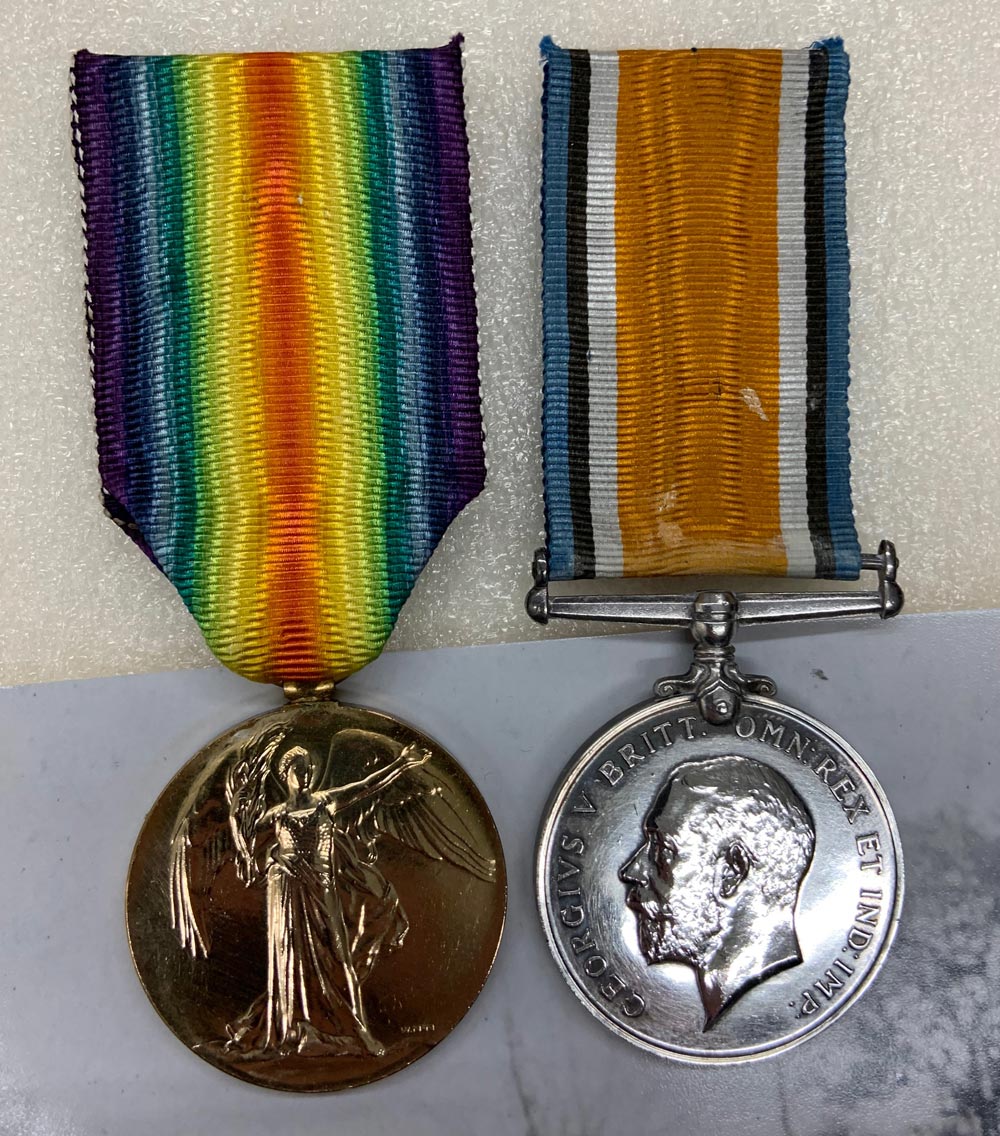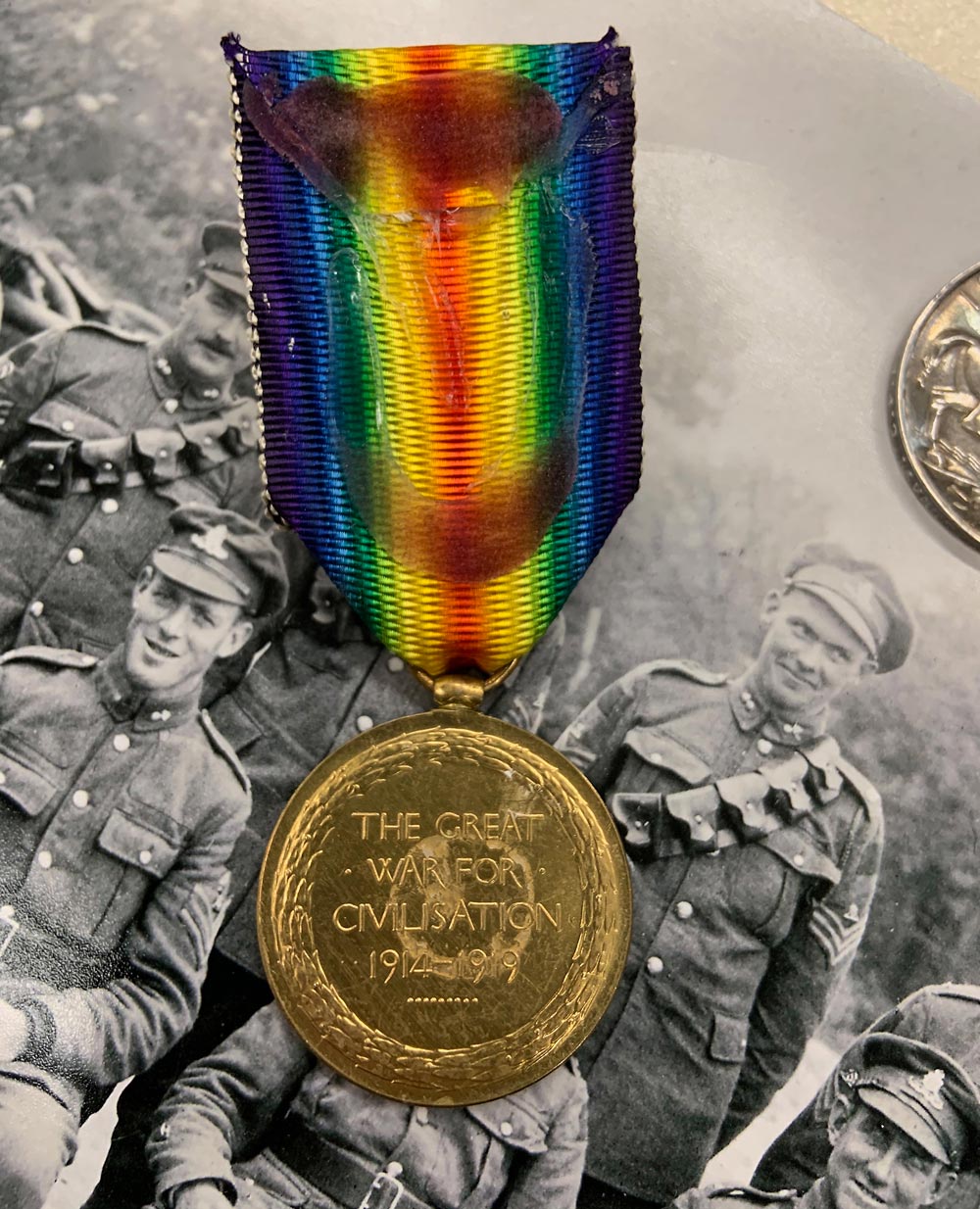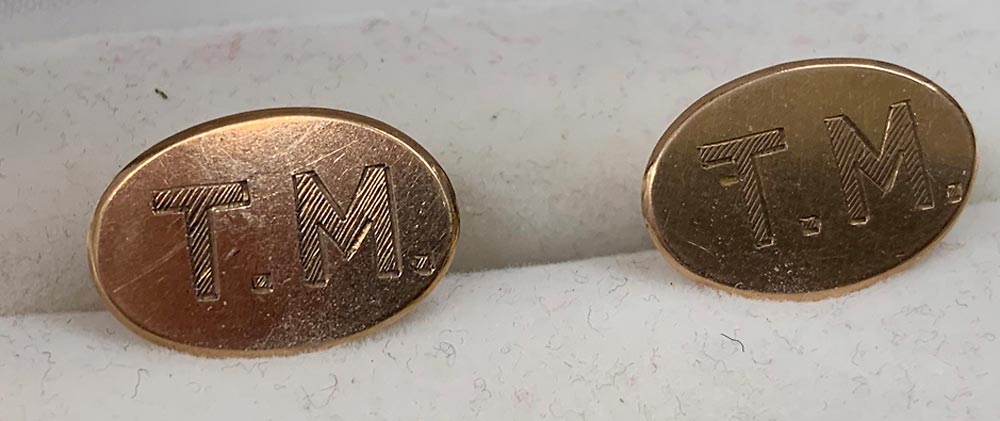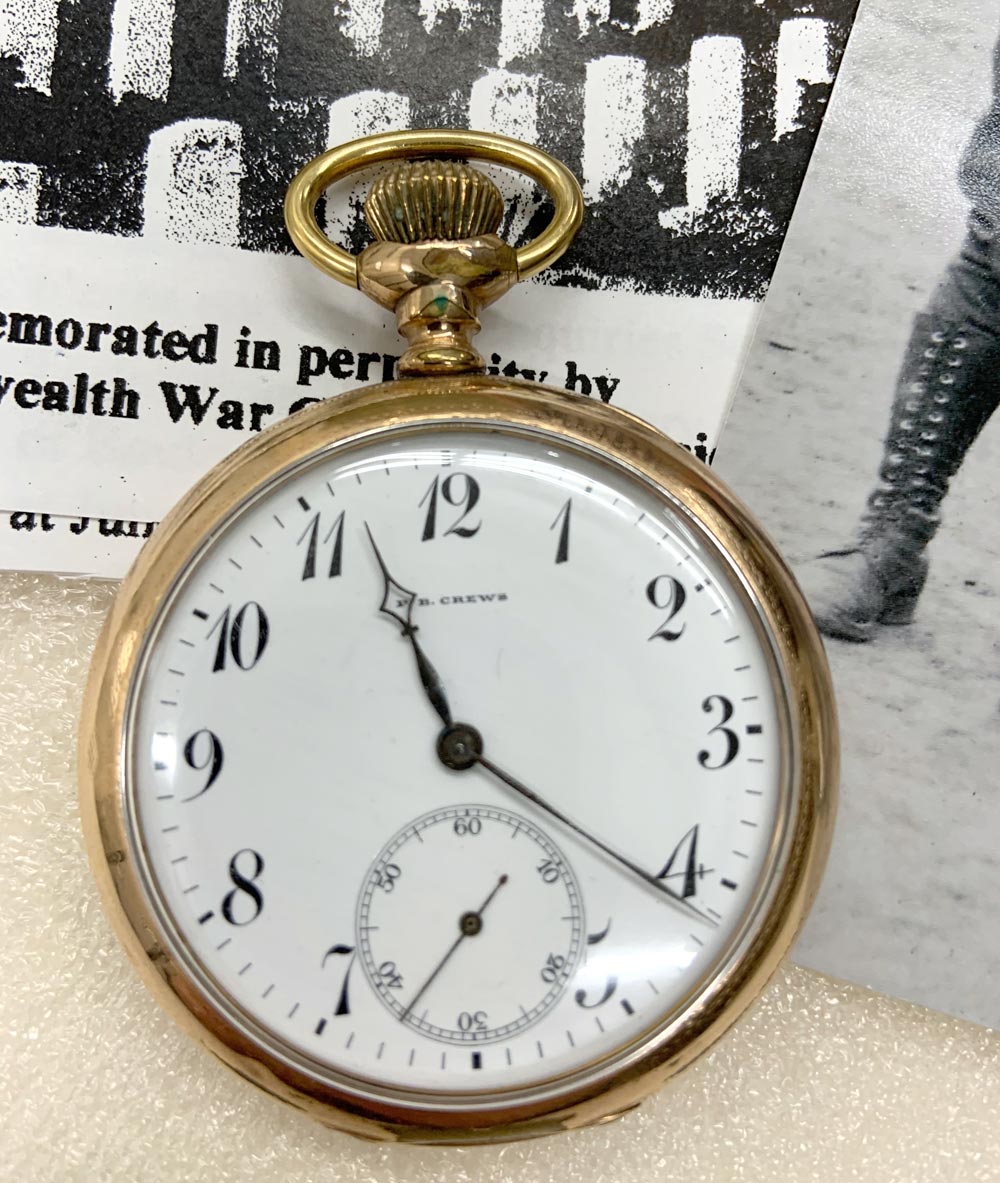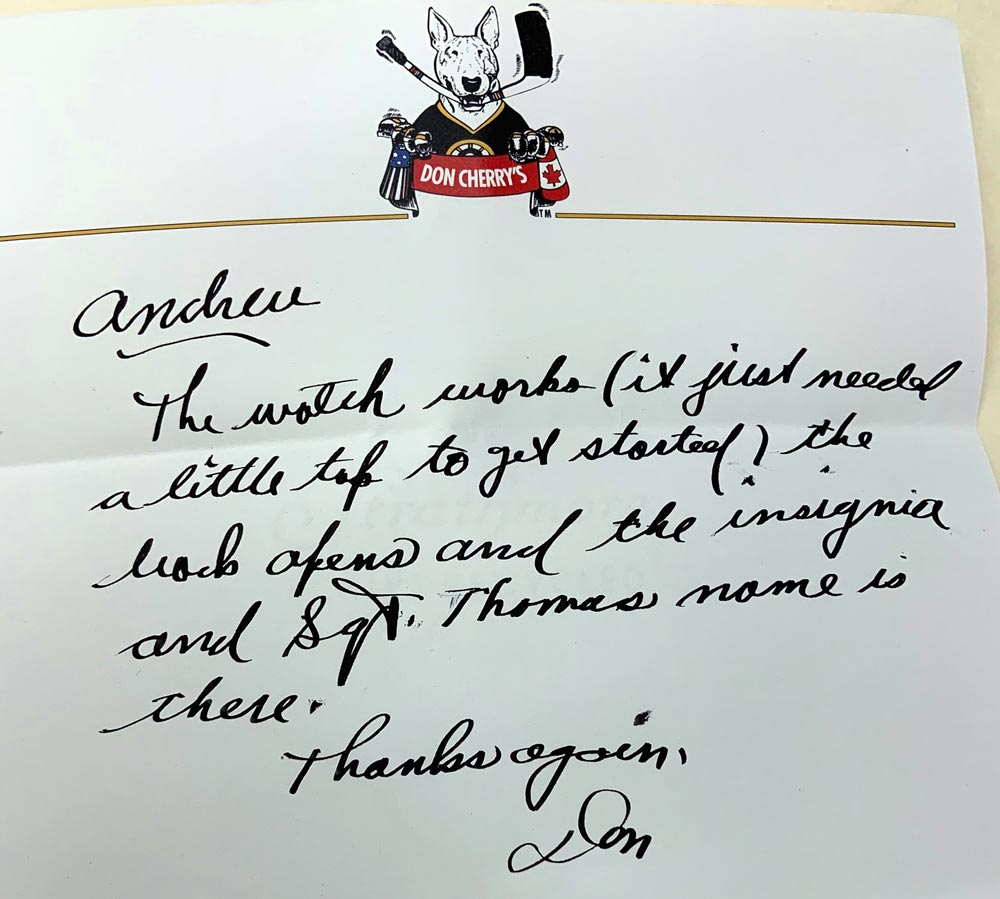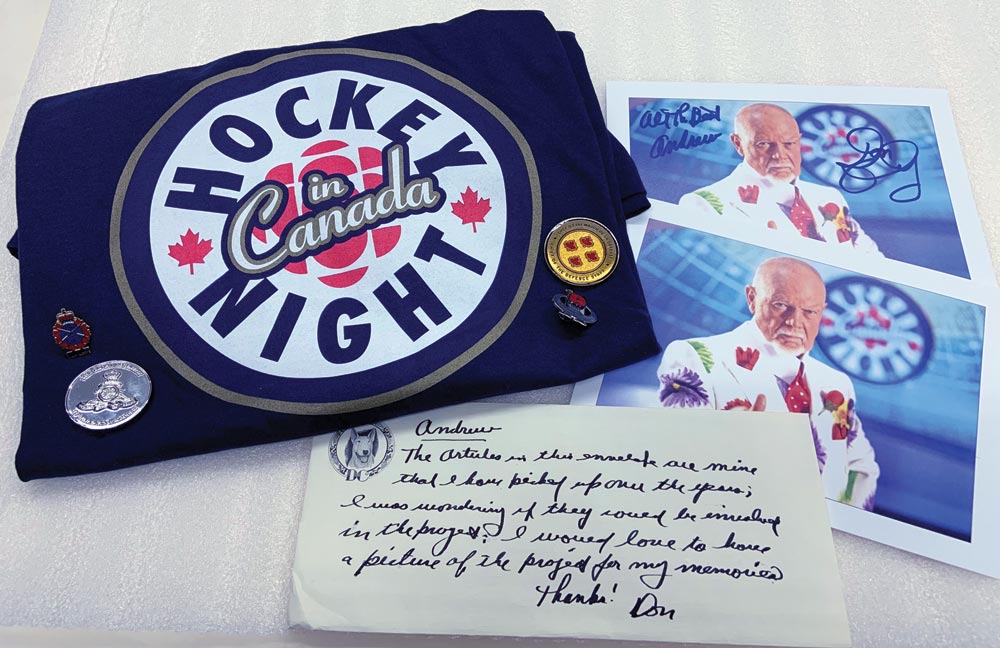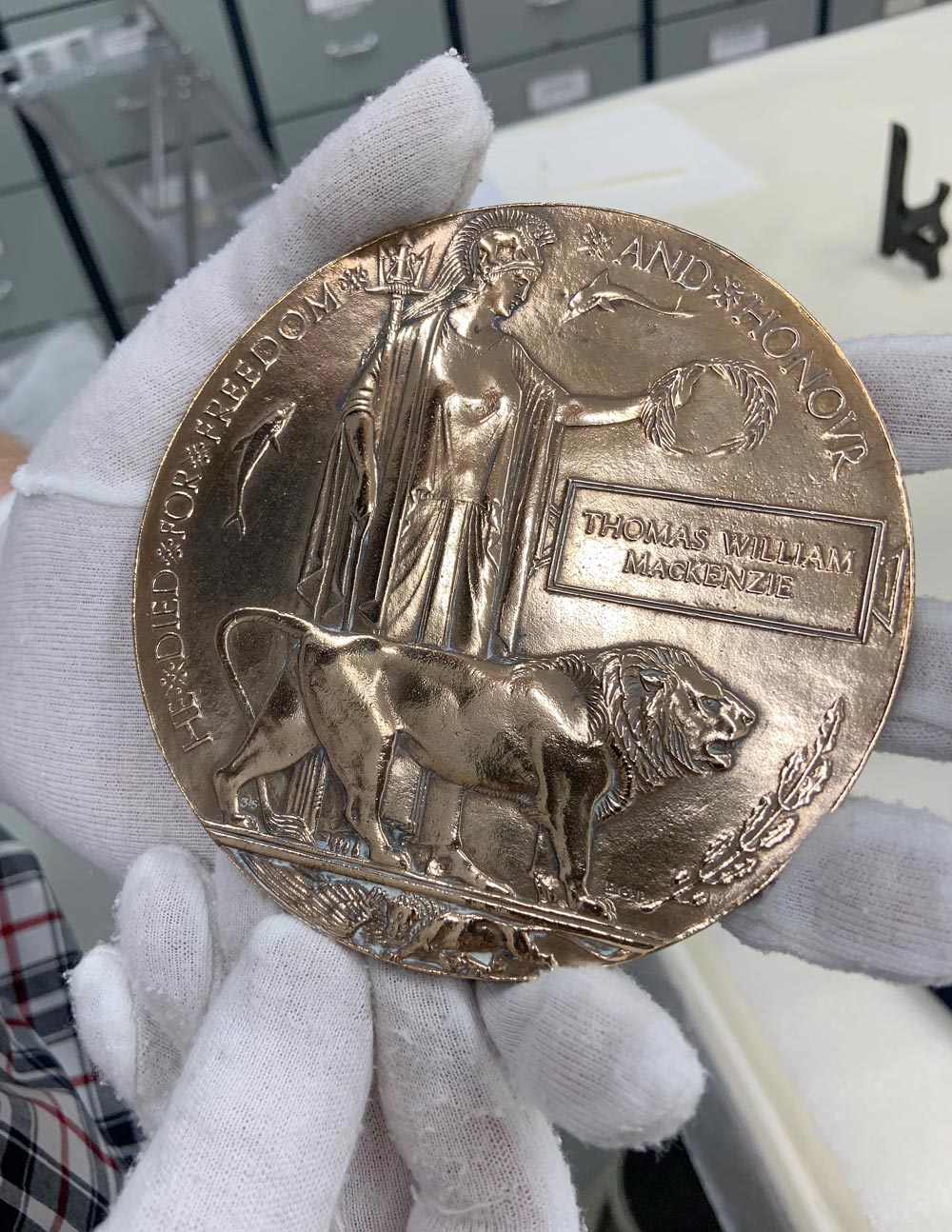
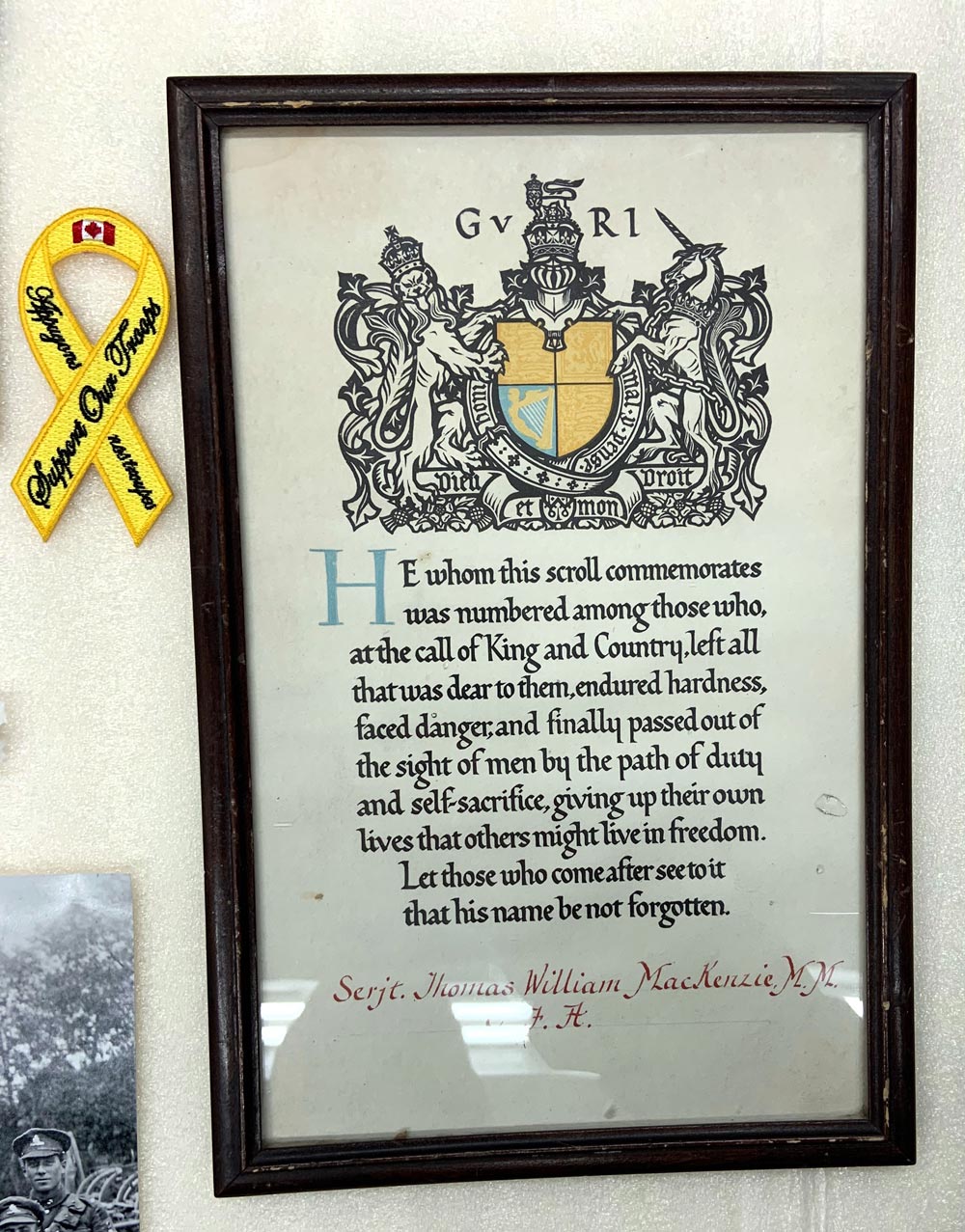
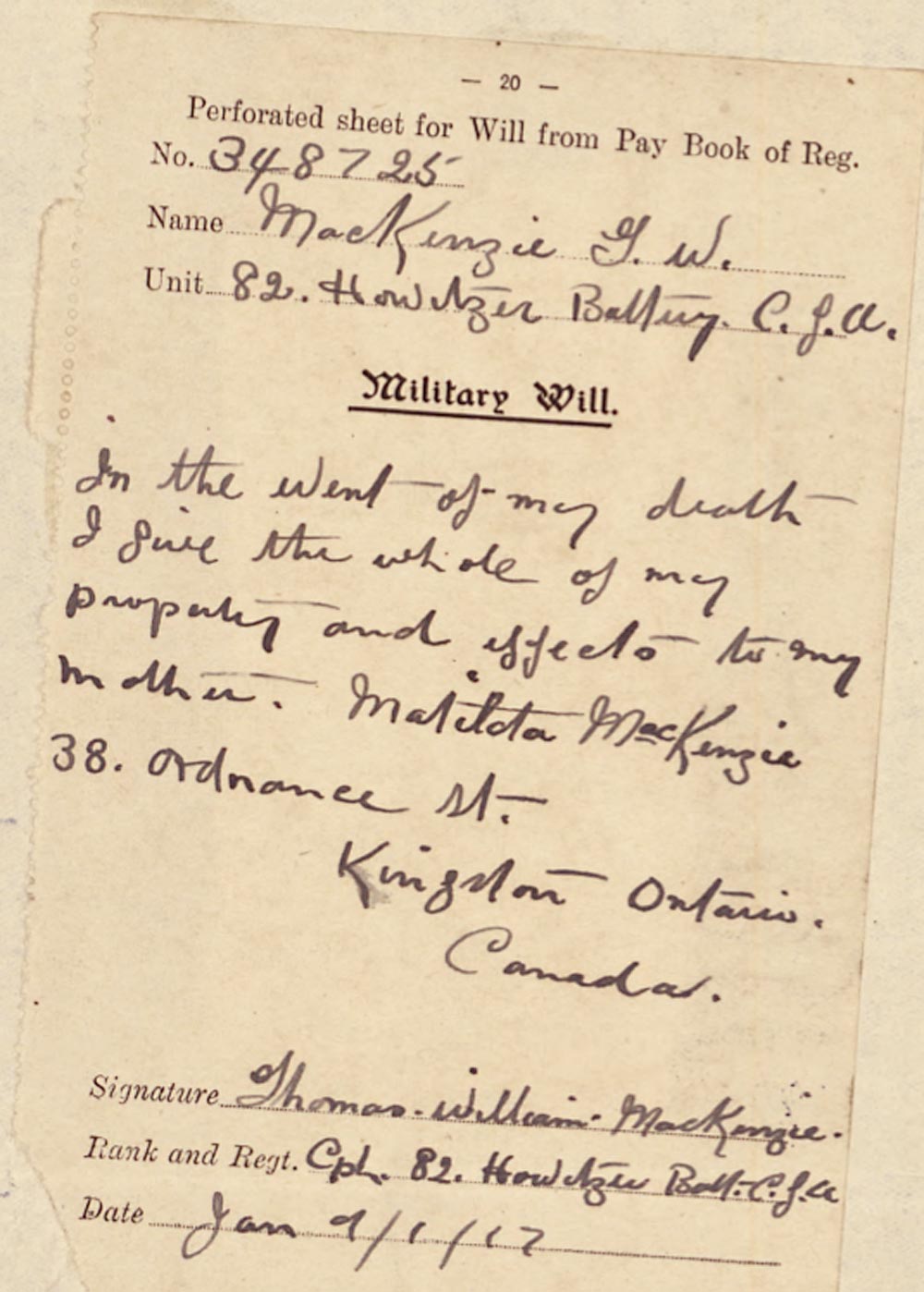
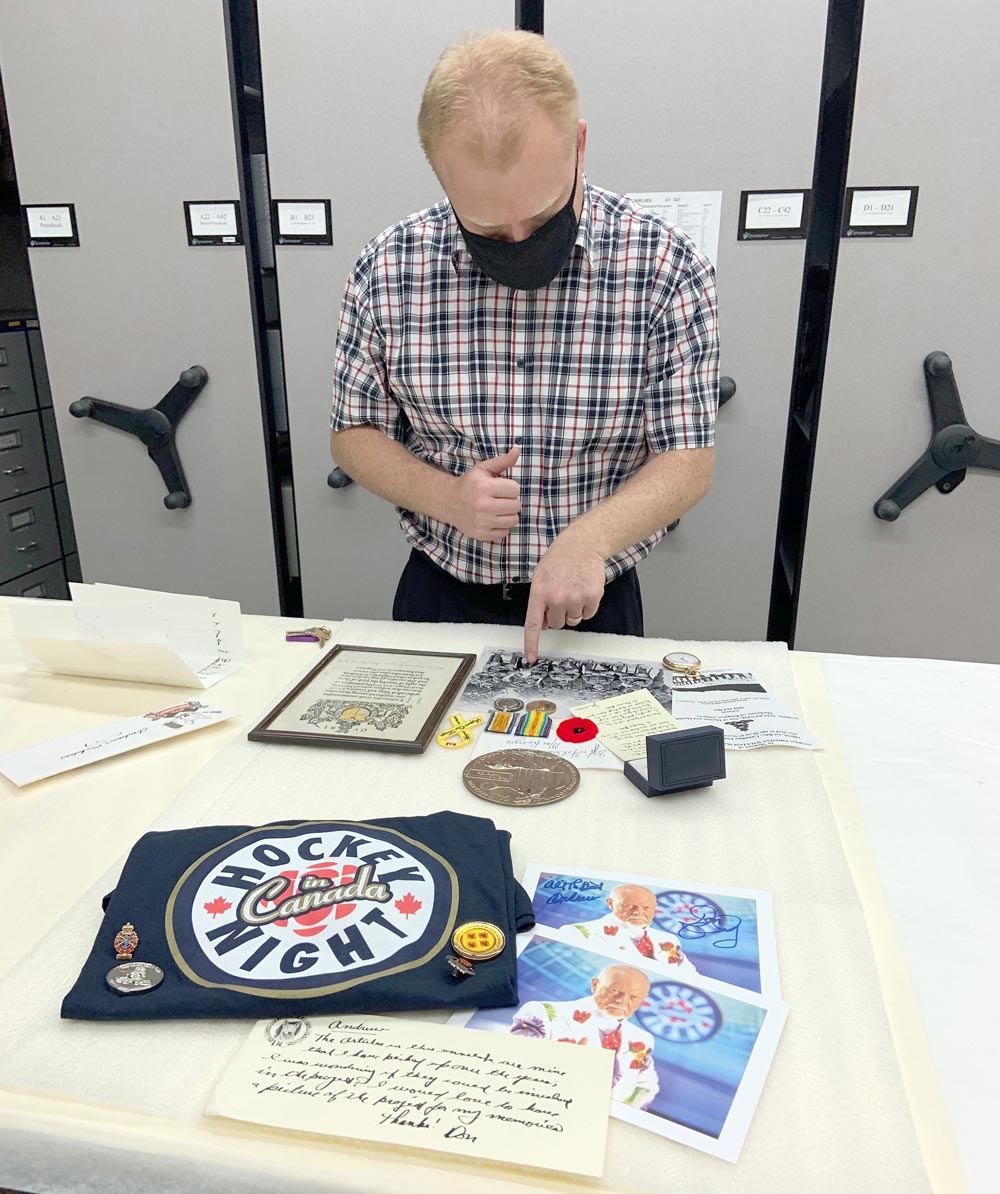
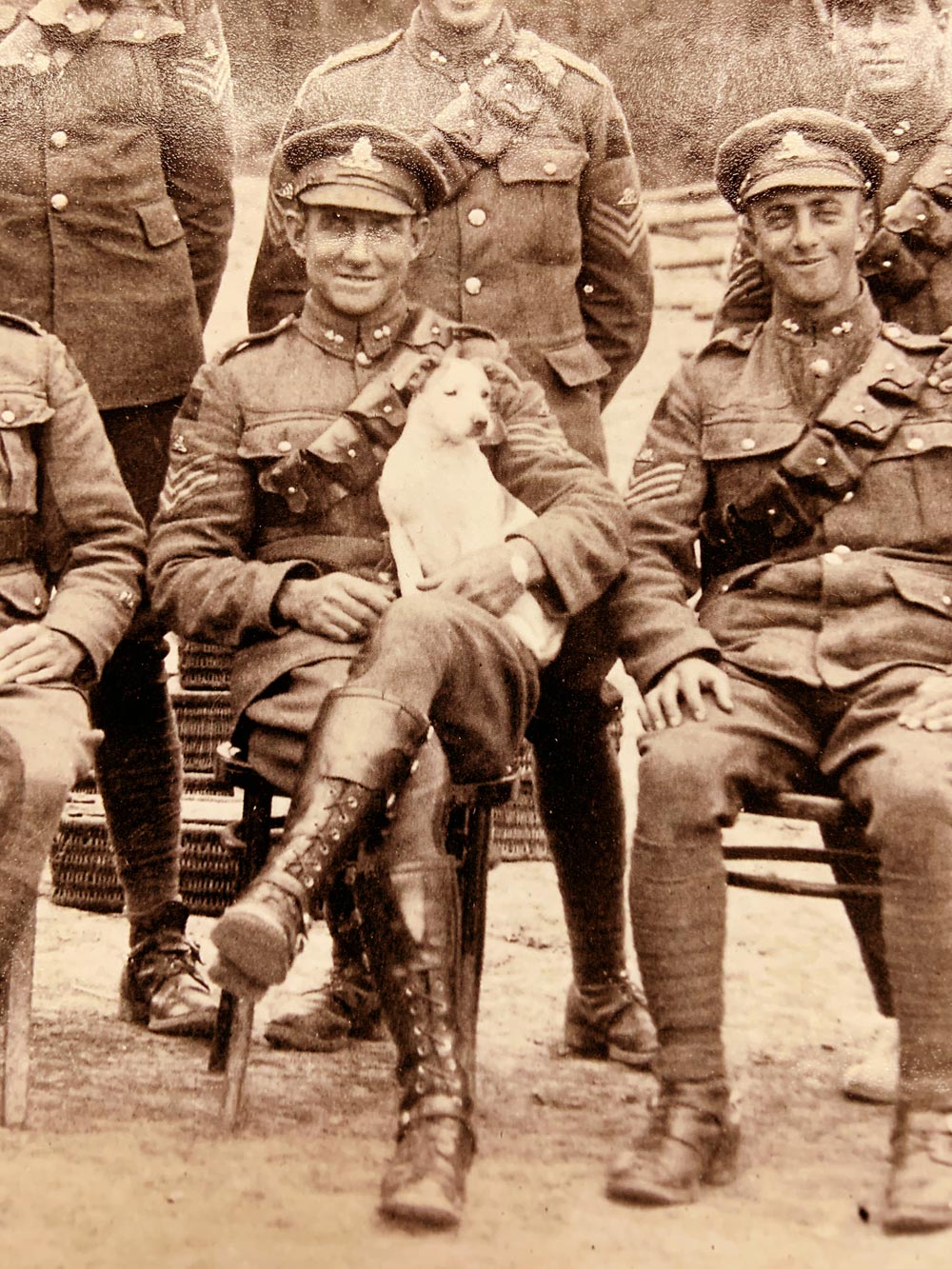
“Youth is the first victim of war — and the first fruit of peace. It takes 20 years or more of peace to make a man; it takes only 20 seconds of war to destroy him.”
— Boudewijn I, King of Belgium (1934 – 1993)
Jules Xavier
Shilo Stag
He might have been a plumber as a civilian, but during the First World War acts of bravery on the battlefield did not go unnoticed by his Chain of Command.
Sgt Thomas MacKenzie was awarded the Military Medal (MM), with bar, on Aug. 6, 1918. Eight days later he was wounded for the first time during the 100-day push, but remained on duty.
Unfortunately, following a serious GSW (Gun Shot Wound) to his left arm and head on Oct. 16, he died five weeks later at 6:30 a.m. at 14 General Hospital — four days before the First World War ended on Nov. 11, 1918. He was awarded a bar for his MM on Aug. 29, 1919.
Currently, visitors to the RCA Museum are able to see a special display featuring Sgt MacKenzie’s Great War memorabilia, including two of his medals, bronze memorial plaque, commonly known as the Dead Man’s Penny, and a working gold pocket watch.
These items are now part of the museum’s vast artillery collection because of a donation from former longtime Coach’s Corner contributor Don Cherry. From his home in Ontario, the former NHL coach — Boston Bruins and Colorado Avalanche — reached out to the former RCA Museum’s Regimental Major, Maj Trevor Michelsen, about donating his great-uncle’s war memorabilia.
“Sgt MacKenzie is one of 60,000 Canadians who died in the war and deserves to be honoured … should be honoured,” said museum director Andrew Oakden. “Thomas was a typical Canadian who stepped up and volunteered to go overseas. He had repeated acts of bravery where he was awarded his Military Medal, with bar.”
Oakden’s staff created a special display case with the donated artifacts, which is now in the museum’s First World War section.
“My reason for donating Sgt Thomas [MacKenzie’s] memorabilia to your museum is I looked at the medals etc and thought to myself … who would honour and feel the same as I do about these articles,” 89-year-old Cherry wrote Oakden. “I thought of your museum and the RCA [at] CFB Shilo. I know that Sgt Thomas [MacKenzie] would feel honoured these articles are with your museum.”
The memorabilia arrived in Manitoba, with museum staff initially kept busy cataloguing and preparing the items, including Coach’s Corner memorabilia provided by Cherry to accompany his great-uncle’s artifacts.
Among those items received during the COVID-19 pandemic in 2021 was a CDS coin he received, plus an autographed image showing Cherry in one of his many colourful suits he wore on the CBC show which ran for 37 years.
In a letter included in the parcel, Cherry wrote: “Thank-you [Andrew] so much for allowing Sgt Thomas MacKenzie into your great museum. I am very proud of Sgt Thomas and I know he is honoured to be in your museum.”
Cherry pointed out in the letter his great-uncle worked as a plumber in Kingston at Royal Military College (RMC).
“It was a tragedy that [Thomas] was killed on Nov. 7, 1918 four days before the end of the war,” he wrote.
Among the cherished items provided by Cherry is an eight-by-10 photograph of Sgt MacKenzie sitting among a group of fellow CEF soldiers. On his lap is a while Jack Russell Terrier.
“This is a great collection,” said Oakden as he perused the memorabilia laid out in one the museum’s special document processing rooms prior to being put on display. “I think visitors to the museum will enjoy this special collection.”
Who was blue-eyed Sgt Thomas MacKenzie, a man standing five-foot-10 when he signed his attestation papers after enlisting in Kingston on Jan. 24, 1916?
Prior to the war, he did serve with the 48th Highlanders for two years. A bachelor before going overseas, Sgt MacKenzie was with C Bty RCHA when he began his artillery training in Canada. He was initially posted to 82 Howitzer Bty RCFA in October 1916, and later as part of reinforcements transferred to 1st Battalion CFA (Canadian Field Artillery).
He left for Halifax after initial training in Canada aboard SS Olympic on April 11, 1916. After the trip across the Atlantic Ocean, he landed in Liverpool, England and was Taken on Strength (TOS) at Shorncliffe. By the fall he was promoted from Gunner to corporal, and this was confirmed on March 14, 1917 while training in Witley.
On March 18, 1917 after months of artillery training on English soil, he finally left for the front in France. His soldiering on the battlefield earned him his sergeant’s stripes on March 30, 1918.
In early August 1918, Sgt MacKenzie’s bravery on the battlefield earned him his MM. A few weeks later he suffered his second war wound on Sept. 26, this time a GSW while fighting the Germans in France near Boulogne.
Considered “serious wounds” by military medical staff, he was admitted to 14 General Hospital on Oct. 12. On his casualty form medical staff wrote “condition is very poor” and “dangerously ill.”
An error by medical staff listed Sgt MacKenzie as dying on Oct. 10. This error was corrected a few days later on the medical records, as the sergeant continued to fight for his life.
But his fight ended at dawn four days before the Armistice was signed in the Forest of Compiegne by the Allies and Germans, ending the Great War, after four years of conflict.
In his will written on Jan. 1, 1917 from the CEF’s Pay Book, Sgt MacKenzie wrote: “In the event of my death I give the whole of my property and effects to my mother [Matilda in Kingston, Ont.].”
During the war overseas, Sgt MacKenzie thought about his mom and assigned $15 of his monthly pay to be sent back to her in Ontario. From April 1916 to Dec, 1, 1918, that meant Matilda MacKenzie received $480.
While the Kingston plumber did not return home, his heroics on the battlefield is not lost on Oakden.
“I think Don will be happy once we finish off the display for his great-uncle. He’s provided us with some great artifacts. He’s asked for a photograph of it once we are done for his memories.”
Following his Nov. 7 death from wounds, Sgt MacKenzie was buried in area IX, row D, grave nine in the Terlincthun British Cemetery in Wimille, which is on the northern outskirts of Boulogne.
RCA Museum director Andrew Oakden inspects war memorabilia donated by Don Cherry from his great-uncle Sgt Thomas MacKenzie. Oakden points at the Great War soldier on an eight-by-10 photograph. Among the artifacts the museum received from the former NHL coach is a framed memorial to the sergeant, as well as his military will he wrote on Jan. 7, 1917. Museum staff created a special display case which is located in the Great War area. Photos Jules Xavier/Shilo Stag
